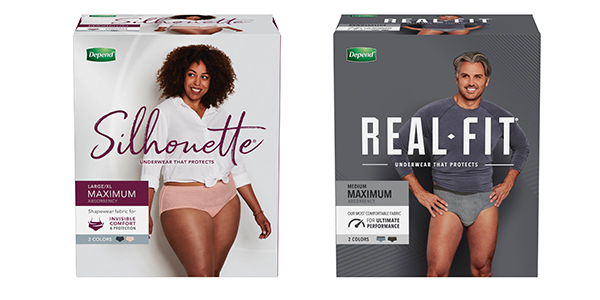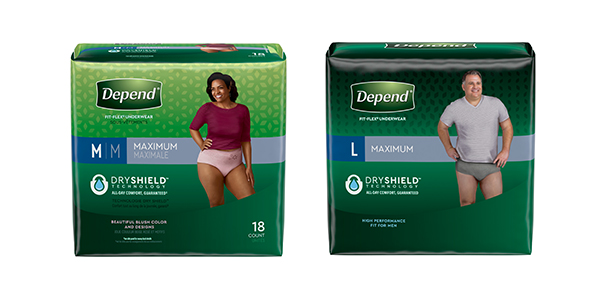Stress Incontinence: What It Is, Why It Happens and How to Take Control

SPONSORED CONTENT
Leak a little when you giggle? Leak a lot when you squat? Here’s a look into the causes, symptoms and solutions to the common bladder leakage experience called stress incontinence.
Symptoms of stress incontinence are leaking urine when you sneeze, laugh, cough, jump, jog, lift something heavy or do strenuous activities — basically anything that puts so much pressure on your abdomen and bladder that your urethra can’t stay closed. If your stress incontinence is more severe, you might leak when you change positions, like standing up or bending over.
Stress incontinence is especially common in women, with about one in three suffering from it at some point in their lives.1 It can also happen in men who’ve had prostate surgery. These accidents, whether a few drops or a gush, may leave you uncomfortable and not feeling too fresh.
Stress incontinence is caused by weak pelvic floor muscles.
The pelvic floor is a hammock of muscles that support the bladder. They stretch from the pubic bone to your tailbone, from one sit bone to the other. These muscles can be weakened by childbirth, weight gain, chronic coughing, nerve injury or disease (such as multiple sclerosis, diabetes or stroke) and surgery. Estrogen loss around menopause may also contribute to incontinence because estrogen helps to keep the tissues of the urethra plump.
There are many things you can do to improve leaks.
First, talk to your doctor. You’ll want to get a proper diagnosis, make sure your leaks aren’t a symptom of something more severe and discuss the best treatment options for you. Read this article about how to prepare for your visit.
Certain foods and drinks can irritate the bladder and trigger leaks, so you may want to limit or avoid them. We’re talking alcohol, caffeine, carbonated beverages, spicy foods and citrus fruits and juices. Since smoking can make you cough and cause leaks, you should probably pass on the puffing.
It’s important to strengthen your pelvic floor muscles with pelvic floor exercises, also called Kegels. A pelvic floor physiotherapist can show you how to find the right muscles and do the exercises properly. Biofeedback devices and weighted vaginal cones can help to build your pelvic floor strength, too.
Other ways to manage stress incontinence include a pessary inserted into the vagina to support the bladder and urethra, electrical devices to stimulate the pelvic floor, local estrogen therapy (e.g. vaginal creams, rings or pellets), collagen injections around the urethra, a urinary sphincter implant and surgery to lift the bladder.
Stay dry and comfortable with Depend®
There’s nothing quite like being in the car, on a long walk or at an event only to have a leak. Avoid those unexpected moments and protect yourself with absorbent products that keep you dry, comfortable and fresh.
Opt for stylish, smooth disposable undergarments that look and feel great. Made from soft, breathable fabric that’s unnoticeable under clothes, curve-hugging Depend Silhouette® Briefs for Women and the sleek Depend® Real Fit for Men provide all-day confidence, peak comfort and ultimate protection from leaks and odours.

Another favourite is the classic comfort and thin design of Depend Fit-Flex® for Women and Depend Fit-Flex® for Men, with fast-absorbing material so you can stay dry, comfortable and protected every day, everywhere!

Learn more about Depend® products and order free samples at Depend.com. Subscribe and save on your favourite Depend® products on Amazon.
*If you’re not completely satisfied with your Depend® Underwear, we can help. Original receipt/UPC required. Restrictions apply. See Depend website for details. Purchase by 12/31/24. Mail in by 1/31/25.
1 Urology Care Foundation. (n.d.). Stress urinary incontinence. Retrieved December 15, 2020, from https://www.urologyhealth.org/urology-a-z/s/stress-urinary-incontinence-(sui)
